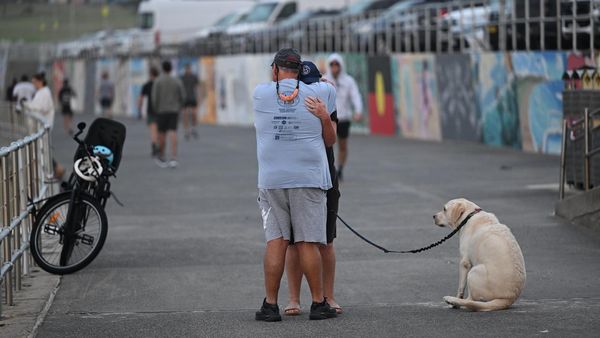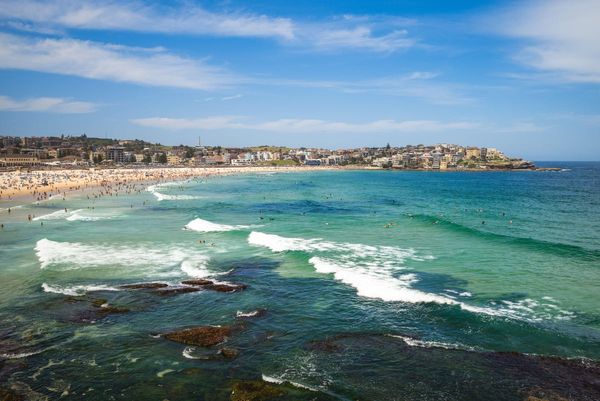
Boris Johnson will haunt Rishi Sunak till the end. The current prime minister is desperate to put the recent past behind him, to persuade the country that he represents a new government and a fresh start. But every time he steps forward, the last prime minister (but one) sticks out a leg to trip him up.
The latest move came this morning, when just hours after the government had announced it would rather go to court than hand over Johnson’s unredacted WhatsApp messages and notebooks to the Covid inquiry, the former PM himself popped up to say he was “perfectly content” for Lady Heather Hallett and her team to see them, duly sending her a whole lot. Thanks a bunch, Boris.
Sunak’s legal challenge to Hallett’s demand was already looking shaky, with one minister publicly admitting that it was likely to fail, and a former Downing Street chief of staff arguing that it should never have been launched. But now it is fatally undermined, politically if not legally.
For Johnson has stripped away the veneer of supposedly disinterested justification that Sunak had applied to his application for a judicial review, of Hallett’s insistence on seeing everything. Sunak can no longer claim to be defending the privacy of a predecessor, because the predecessor is happy to let it all hang out – my apologies for that image – or at least to give that impression: in fact, the material Johnson has handed over is not from the phone he used in the crucial period.
Still, Sunak’s reticence has been exposed as self-interested. He wants to keep to a minimum the embarrassments of the Covid era, because they remind many millions of voters exactly when and why they came to despise this government. And, more self-interestedly still, the PM fears that Hallett is about to set a precedent for full disclosure – which means the investigators could soon demand to see every message on his phone.
After all, there is nothing historic about the Covid inquiry. True, three of the key players – Johnson, Dominic Cummings and Matt Hancock – have left government, but two are still there: Michael Gove and Sunak himself. The latter has plenty to fear from the probing eye of the baroness. He was one of those fined over Partygate, while the benefits of the scheme he introduced as chancellor to boost the restaurant sector are so dubious, it might more accurately have been named Eat Out to Help Spread Covid.
Which might explain why a government that likes to rail against “lefty lawyers” and their casual resort to judicial review – as the 2019 Tory manifesto thundered, it must not be “abused to conduct politics by another means or to create needless delays” – nevertheless deployed the device with such alacrity on Thursday. This was a rare attempt to block the head (whom it had appointed) of a public inquiry (which it had set up), rather than just let her do her work.
Even putting aside the politics, the legal case is strikingly weak. First, it seems obvious that the best arbiter of what the inquiry should or should not see is the inquiry itself, rather than one of the institutions or individuals under examination. Government lawyers wrote to Hallett, explaining that they were holding back material they regarded as “unambiguously irrelevant” – to which the former judge replied, if not exactly in these terms, “I’ll be the judge of that”.
Public inquiries usually draw their scope widely, especially at the start. They operate like a funnel: taking in a lot, then gradually narrowing down to what they, and no one else, decide is the key evidence. In this case, Hallett is especially justified in wanting to make her own decisions. She spotted that an initial Cabinet Office submission of WhatsApp messages had blacked out discussions between Johnson and his team over police enforcement of Covid regulations during the demonstrations that followed the murder of Sarah Everard. They had deemed those messages “unambiguously irrelevant” to Hallett’s inquiry when, in fact, they were anything but. The Cabinet Office later backed down, but the judge was not impressed. “It was not a promising start,” she wrote.
But the heart of the matter is the exceptional nature of the task Hallett has been set. “There’s never been an inquiry like this,” says the human rights lawyer Adam Wagner, the leading expert on the regime of regulation imposed during the pandemic. “Everybody in the country could be named as a core participant. There could be 65 million victims.” Other medical inquiries, such as the one into the infected blood scandal, have counted those affected in the hundreds or thousands. Covid led to a huge number of deaths, but serial lockdowns shaped the lives of absolutely everyone.
This means Hallett has no choice but to define the scope of her questioning extremely widely. Of course she needs to see every text message and document, because Covid touched every corner of activity in No 10 and beyond. “This is not a single issue that can be parcelled off,” Wagner tells me. “This was a crisis that enveloped the entire government.”
And so, what Sunak and his advisers might like to hold back as “irrelevant” could instead be critical. Doubtless, there will be a slew of mortifying personal messages – including ministers badmouthing colleagues – that Downing Street would prefer stay hidden. But Hallett has already said that she needs to know about “disagreements between members of the government”, not to satisfy a craving for gossip but because discord at the top may well have hobbled the government’s response to the disaster.
The same goes for the curious disengagement of Johnson at the start of the crisis, his failure even to turn up at successive Cobra meetings. Hallett needs to see his diary to know if he was dealing with weighty affairs of state that might excuse his inattention to a galloping pandemic, or if he was distracted by matters far less forgivable.
The inquiry will similarly look at procurement, including the dash to secure personal protective equipment (PPE). We know about the “VIP lane” that allowed those with contacts in government, often with no record in the field, a fast track to apply for contracts worth hundreds of millions. Officials might regard an exchange of messages between a minister and a would-be supplier that ultimately resulted in no contract to be “unambiguously irrelevant”. Hallett – and the public – could see it rather differently. And remember, none of this stuff will be automatically published for all to see. All Hallett wants is the right to look at it and determine its relevance. Any decision on publication will come later.
When Sunak first stood on the steps of No 10, he promised “integrity, professionalism and accountability at every level”. He knew he would not have become prime minister had it not been for Johnson’s extravagant violation of the very rules he had imposed on everyone else, and the public hunger to see those in charge held to account. That need made Sunak – but it could break him too.
Jonathan Freedland is a Guardian columnist







